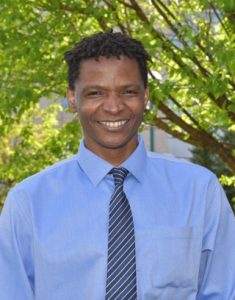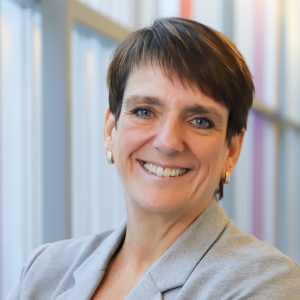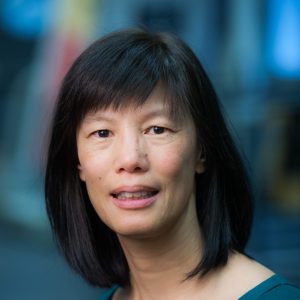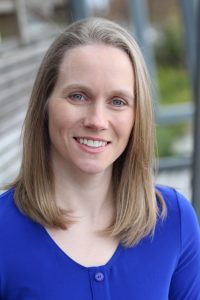Congratulations to our Rehabilitation Sciences faculty who received new funding from Michael Smith Health Research BC through the 2023 Convening & Collaborating (C2) (Dr. Taru Manyanga and Dr. Jill Zwicker) and Reach programs (Dr. Teresa Liu-Ambrose, Dr. Janice Eng, and Dr. Stephanie Glegg). These funding programs enable health researchers to foster collaboration, disseminate and implement evidence, and increase the impact of their research — ultimately improving the health of people and communities in BC.
Convening & Collaborating (C2) Awards
C2 awards support health researchers and research users to engage in meaningful collaboration to co-create relevant and impactful research for people such as patients, health practitioners and policymakers.
Dr Taru Manyanga

Dr. Taru Manyanga is a registered physical therapist and Affiliate Assistant Professor of Physical Therapy in the UBC Master of Physical Therapy-North program.
Project title: ‘A multisectoral physical activity engagement strategy for youth living in Northern British Columbia’
Project Summary: Inequities in opportunities to participate in regular physical activity (PA), and the health risks associated with insufficient PA, including low self esteem, increased adiposity, low academic performance and the early onset of non-communicable diseases among youth, requires urgent attention. Insufficient PA is higher among rural youth, who are typically excluded in PA related research. This is a community-based project involving 4 collaborative engagement workshops to identify and address barriers to youth PA in northern, rural, and remote BC communities. The project will consist of brainstorming workshops conducted over 12 months aimed at centering youth voices, providing opportunities for youth to take leadership roles in developing and promoting PA programs, as well as advocating for policies and initiatives that support their regular PA participation in the community.
Dr Jill Zwicker

Dr. Jill Zwicker is an Associate Professor in the Department of Occupational Science and Occupational Therapy, a Canada Research Chair in Pediatric Brain Development and Rehabilitation, and an Investigator at BC Children’s Hospital.
Project Title: ‘Partnering to improve early identification and early intervention for children with developmental coordination disorder’
Project Summary: Developmental Coordination Disorder (DCD) is a common condition that significantly interferes with a child’s ability to learn motor skills. Without treatment, these motor challenges can persist into adulthood and limit job opportunities, affect physical and mental health, and impact quality of life. Early identification and intervention are crucial to change this negative trajectory. Our survey of BC parents of children with DCD showed that they first identified concerns about their child’s motor skills at age 3 years, but did not receive a diagnosis until age 8, missing a critical window for early intervention. Parents also identified significant barriers to accessing therapy for their child. In this project, we will bring together a diverse group of parents, researchers, health organizations, and clinicians to determine how to streamline early identification and improve access to early intervention. We will hold a series of meetings with these key partners to identify research objectives and co-develop a grant application to implement and evaluate early interventions for children with DCD.
Reach Awards
Reach awards support health researchers to disseminate research evidence by co-developing events, activities, and tools with research users. The funding helps research teams reach audiences who can use the knowledge to make an impact.
Dr. Teresa Liu-Ambrose
Dr. Teresa Liu-Ambrose, PhD, PT, Professor, is a physical therapist and a Tier 1 Canada Research Chair in Healthy Aging at the University of British Columbia, Department of Physical Therapy.
Project Title: ‘Exercise for Healthy Aging: Mobilizing Knowledge with Users and Clinicians in BC’
Project Summary: Exercise can improve cognitive function and mobility in older adults. Maintaining both cognitive function and mobility are vital to functional independence and quality of life. However, many older adults are inactive. Key barriers to exercise include: 1) lack of motivation; 2) medical conditions, such as arthritis; and 3) lack of knowledge on how to exercise safely and effectively. To address these barriers, we intend to use a public forum, workshops, and online resources to motivate and enable older adults to uptake exercise, and thereby contribute to the global agenda of healthy aging.
Dr. Janice Eng

Dr. Janice Eng is a University Killam Professor and Canada Research Chair in the Department of Physical Therapy.
Project Title: ‘Primary Care and Spinal Cord Injury – Filling the Knowledge Gap with Continuing Medical Education and Partnership’
Project Summary: People with SCI need specialized care from their family doctors for health issues such as bladder, bowel, skin, pain, blood pressure, fertility, and breathing conditions. However, most family doctors have received little training on how to help a patient with SCI. We will host a Continuing Medical Education event where family doctors and people with SCI can learn about key health issues about SCI and speak freely about their concerns. These activities will complement our existing Spinal Cord Injury Research Evidence (SCIRE) website (scireproject.com) which has a special section for Primary Care and SCI and is accessed by over 300,000 health care providers annually. Lastly, all activities will be evaluated for their impact.
Dr. Stephanie Glegg
 Dr. Stephanie Glegg is an Assistant Professor in the Department of Occupational Science and Occupational Therapy and an Investigator at BC Children’s Hospital.
Dr. Stephanie Glegg is an Assistant Professor in the Department of Occupational Science and Occupational Therapy and an Investigator at BC Children’s Hospital.
Project Title: ‘Early detection and diagnosis of cerebral palsy: Implementing best practice guidelines in BC ’
Project Summary: Cerebral palsy (CP) is the most common physical disability in Canadian children. Early therapy can maximize a child’s abilities and prevent health complications. In the first two years of life, the brain is most able to reorganize and grow new pathways. Yet, the average age of diagnosis in BC is nearly 25 months. A diagnosis helps families to understand what CP is, access therapies and plan for the future. Our survey showed many doctors lack the knowledge, skills, and confidence to diagnose early, and an understanding of families’ lived experience. Our strategy for change includes education, training, and sharing parents’ experiences using online learning, resources, and interactive online and in-person workshops. Our aim is to support doctors to assess for and diagnose CP early, and help families through the diagnosis and next steps.
